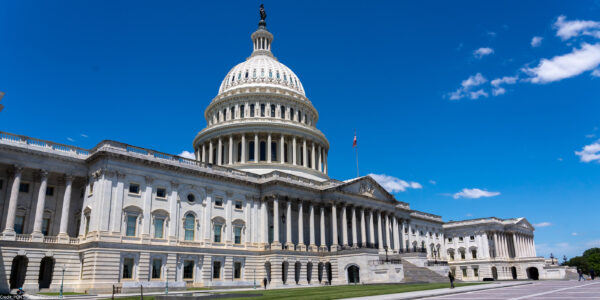Controversial Immigrant Registration Program May End; ACLU Says Arabs and Muslims Still At Risk for Unjustified Targeting, Deportation
FOR IMMEDIATE RELEASE
WASHINGTON - The American Civil Liberties Union today expressed cautious optimism about news reports that the government plans to end its controversial immigrant registration program, but said the most important question is whether re-registration deadlines would continue to apply to more than 80,000 people who have already registered once.
The ACLU also said it had concerns about a new initiative to be implemented in January that could also be used to target Arab and Muslim immigrants.
"The government's plan to terminate special registration for Arab and Muslim immigrants is an implicit acknowledgement that this was a failed, discriminatory program," said Lucas Guttentag, Director of the ACLU's Immigrants' Rights Project. "However we remain deeply concerned about the fate of the more than 80,000 people who complied with the program last year and whose re-registration deadlines are imminent."
The news that officials contemplate ending the program came just weeks after the ACLU sent a letter asking the Department of Homeland Security to explain why it had failed to give adequate information to immigrants who are required to re-register beginning this month.
"We have said all along that this program was a trap for the unwary," Guttentag said. "If the re-registration deadlines and other requirements remain in place for people who have already complied with the law, then this latest announcement is merely camouflage and people are still at risk. The government should clarify the situation immediately."
Guttentag also took issue with the Department of Homeland Security's assurances regarding what information people received when they first registered. "It is simply not the case that the government provided registrants with useful information about re-registration deadlines," he said.
Under the National Entry Exit Registration System (NSEERS) Special Registration program, tens of thousands of men over the age of 16 who are citizens or nationals of mostly Muslim countries are required to register with their local immigration office or face possible arrest and deportation.
Last year, the initial registration deadlines resulted in mass confusion, detentions, and ultimately, the initiation of deportation proceedings against more than 13,000 men from predominantly Islamic nations who tried to comply with the law by registering as ordered by the government.
A new national border security system set to go into effect on January 5 is also fraught with problems, the ACLU said. Under the US VISIT program, 24 million foreign visitors to the United States from countries without visa waiver programs will be required to include fingerprints and photos in their citizens' passports.
The ACLU urged homeland security officials not to heed proposals to use facial recognition technology to scan passport photos for people on terrorism watch lists. The ACLU has criticized the technology as ineffective, because it fails to positively identify suspects and wrongly identifies many innocent people.
While US VISIT has been touted as a less discriminatory alternative to special registration, the ACLU said that the government may well continue to use a broad list of suspect visitors and immigrants, such as persons from the Arab and Muslim world, to impose additional, discriminatory registration requirements, in effect continuing the problems of special registration while seeking to avoid controversy by claiming that the program has ended.
"No one is arguing with the need to protect our borders, but these initiatives should target terrorists, not innocent immigrants," Guttentag said.
For more information on special registration, go to /node/11665
For background on the problems with facial recognition technology - including government studies that found high error rates in the program - go to /node/22466



